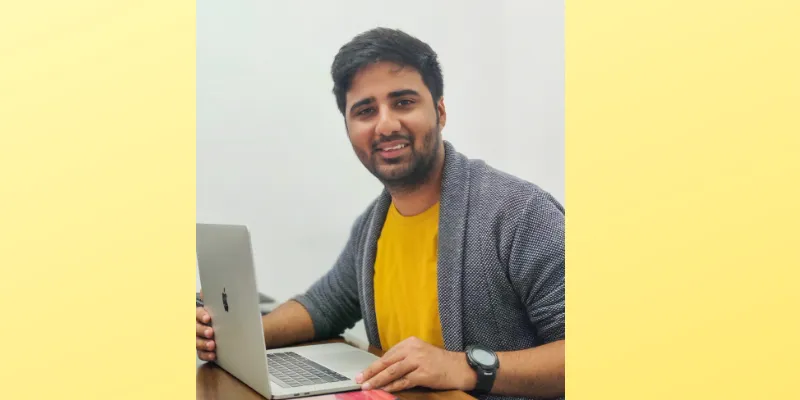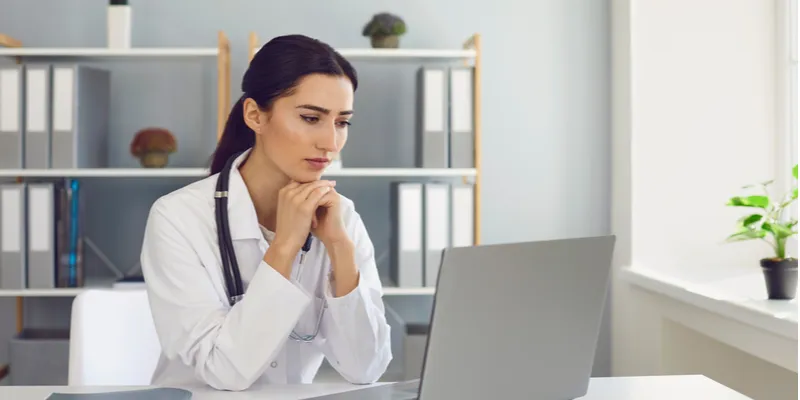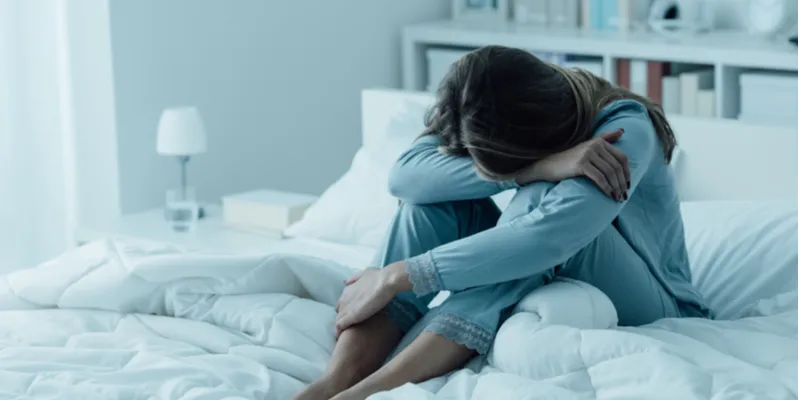Panic, stress, depression: Here’s how Khushal Katara of MotivatedSteps provides online counselling and therapy
Khushal Katara, founder MotivatedSteps, launched free online mental health counselling programmes with counsellors during the lockdown in order to help those who are struggling to cope with the new norms due to the pandemic. Here’s what he has to say about mental health problems in the country.
The greatest fallout of the COVID-19 pandemic is the rise in mental health problems in the nation. The number of people suffering from depression, panic attacks and personality disorders are escalating by the day and many health experts believe that mental health problems could be the biggest crisis in the country in the future.

Khushal Katara
Nagpur based Khushal Katara, founder, MotivatedSteps, an online counselling website, believes that India does not give enough importance to this issue yet, despite the fact that W.H.O. predicts that by 2027, 1 out of 5 people will face a mental health problem. But even today, people act like mental disorders do not exist.
In order to help people facing problems like anxiety, stress, loneliness or sadness, Khushal’s counselling platform helps you deal with your emotional health through video calls, chats and telephonic interviews. With trained and experienced psychologists on board, they are able to help people who are suffering during the lockdown. They believe that small steps towards solving mental issues can bring about a significant change.
Khushal’s “Free Counselling Campaign” was held from April 1 till May 31 of this year during which time his team conducted 1000+ free telephonic counselling sessions with 13 counsellors in charge.
In an exclusive interaction with YSWeekender, Khushal talks about the importance of mental health, why it has worsened over the years and what can be done about it in the future…
Edited excerpts from the interview:
YSW: Can you tell us about the work you are doing currently with MotivatedSteps?
KK: At the moment we are providing online counselling services. Anyone can visit the website and choose a counsellor or psychologist of their choice, select a plan and get counselled via audio or video chat. We've kept our charges minimal as the fee starts at Rs 300.

MotivatedSteps offers online counselling programmes
YSW: Why did you feel the need to start this venture?
KK: It all began when a friend of mine faced the end of a long-term relationship and was unable to come to terms with the situation. Fortunately, her parents recognised the need for counselling and took her to a neighbouring city frequently for counselling sessions, despite the fact that there were many good psychologists in their own city. The only reason for this decision was due to the fear of judgement by society and how it might affect her marriage in the future.
The more I thought about this incident, I felt the need for an online counselling platform where people could take counsel anytime and feel safe as it would remain confidential.
Why do you think mental health is such a big problem now?
The awareness of mental health was low in the past because the focus was always on physical health and that which was visible to the naked eye. Mental health problems are invisible but they are very important and need to be addressed.

Counsellors can help you deal with all your problems (Pic credit: Shutterstock)
The lockdown has certainly worsened the current scenario of mental health because there is a shift in the way people interacted before.
Earlier, our predictable routines and schedules kept us busy and we relied on these things to live. However, with the outbreak of the virus and the new norms of social distancing, the dynamics of human interaction changed.
The state of inactivity and confinement at homes led to increased interaction with family members which sometimes led to conflicts. These problems aggravated the current context of mental health issues.
Why is mental health still considered a stigma in our country?
It is a surprising fact that mental health issues are a stigma in a nation with the highest number of mental illness cases. The reason could be because people don't place as much importance to it as they should. We have been taught to hide, control and suppress our emotions and desires. We lack the necessary knowledge about mental disorders, its causes, remedies, and treatment. We need to educate people about these problems.

Seek help early if you are depressed or stressed (Pic Credit: Shutterstock)
When should someone seek help? Are there any indications?
There is no right or wrong time to seek help. No individual is the same and our upbringing, exposure and life experiences make us distinct from one another. For one person, even tackling grief due to the loss of a loved one is manageable while for others, even something like taking an exam could be too much to handle because that person does not have the coping strategies to deal with it.
Hence, it is totally contingent on the person when he/she decides to take help and if they feel the need to. If they aren't able to cope well with change and it is affecting various aspects of their life, they should seek help.
As for indicators of who needs help around you, look out for social withdrawal, lack of interest in day to day activities, over -sleeping or insomnia, a change in eating patterns or mood changes.
How do you conduct your online counselling sessions?
We conduct our sessions over a normal call or WhatsApp or via Agora video call app or whichever platform the user is comfortable with.
What are some of the cases you have you had so far?
We’ve come across many types of issues, but the most frequent cases were people were suffering from anxiety, depression, relationship issues, interpersonal conflicts and adjustment disorders.
Who are the counsellors on your forum and what kind of training do they have?
The counsellors on board with us are certified psychologists. All of them have a Master's degree in psychology and prior experience in taking sessions. Also, there are many other counsellors partnering with us for a certain time for different campaigns.
What advice do you give people who are depressed or feeling low during the lockdown?
Firstly, it is okay to feel depressed or low. Every emotion that we feel is significant and reminds us of the important aspects of life which give rise to the emotion in the first place.
Therefore, study your thoughts that are leading to these emotions and reflect on what you can do about them.
If you can do something about it, take charge but if you can't, then try to find an alternative to what could be best done in the current circumstances to change your experience. Reach out to people who are close to you and maintain social interactions that add meaning to your life. Also, engage in activities that you are interested in. These things can certainly ease the imbalance you're currently facing.
However, if you feel that things are getting out of hand, seek professional help.
What were you doing prior to this venture and how did you decide to launch it and how has it evolved?
Prior to Motivatedsteps I worked as an Assistant manager in Reliance Jio and I also worked as Growth Hacker in a Pet food startup. I launched MVP in November 2019.
Can you give us three or four tips on mental health that would benefit people at this time?
* It is really important to reach out to people who are close to you and who you think understand you to have a safe space where you can be vulnerable.
* Take some time out to pause and reflect on your thoughts and feelings. Journaling is a good way to have a better perspective.
* Take time for self-care and establish boundaries even with people who are close to you whenever you need time for yourself.
How do you plan to expand your venture in the days to come, post lockdown and later?
Post the lockdown we are planning to tap into school/college and corporate world and experiment with different plans, offline events, webinars and much more. Our priority will be to get funded and launch operations, campaigns at a much higher level as we need to expand our team and launch an app too.
What do you see as the future of mental health in the years to come?
The pandemic has shown us that despite the constraints on interaction, it is highly important to stay connected, for all of us are social by nature.
We now have a robust increase in connectivity through online mediums and various aspects of therapy as well are now being switched to online platforms to reach out to people requiring help. This can help the mental health services to even reach remote areas and increase the accessibility of help as and when required.
The future of mental health appears to be bright in terms of how there is increasing awareness and due to the fact that people are acknowledging the need for help. Mental health professionals are working rigorously to reach as many people as they can. However, there is still a lot of work to be done, and a long road lies ahead.
(Representational pix credit: Shutterstock)









